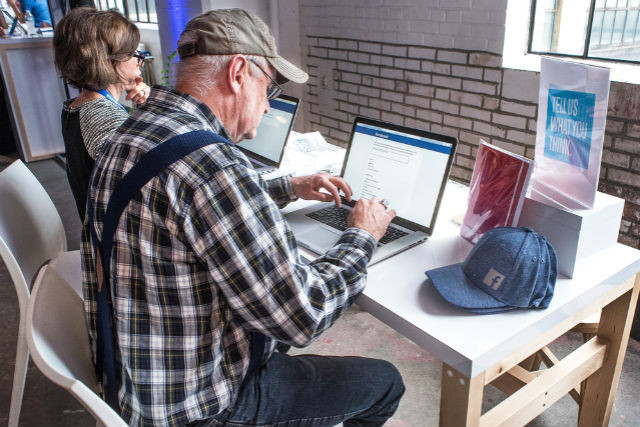Older people are almost four times more likely to have shared “fake news” on Facebook than the younger generation, according to research published in the journal Science.
On average, American Facebook users over 65 shared nearly seven times as many articles from fake news domains as those aged between 18 and 29, researchers from NYU and Princeton found in the study, which also concluded that actually sharing such false content was “a relatively rare activity”.
The researchers analysed the Facebook history of around 1,750 American adults, cross-referencing links they had posted with lists of fake news publishers. In doing so, they found that the vast majority of Facebook users in their data did not share any articles from fake news domains over the entirety of 2016 – just 8.5% of Facebook users in the study as a whole shared at least one link to a domain such as denverguardian.com, truepundit.com, or donaldtrumpnews.co. Those sites, and 18 others like them, made up the list of “intentionally or systematically factually inaccurate” stories that the researchers defined as fake news. Sites that are “partisan or hyperpartisan”, such as far right news site Breitbart.com, were excluded from the list of fake news purveyors.
But of those who did share links from the 21 “mostly pro-Trump” domains that the researchers ended up looking at, there were clear demographic differences. Almost one in five (18%) of Republican users shared at least one link to a fake news site, compared to less than 4% of Democrats. What’s more, the more conservative a user was, the more articles they shared – a finding attributed to the fact that fake news in 2016 was mostly pro-Trump, and “the tendency of respondents to share articles they agree with”.
What’s more, those who shared the most content in general were less likely to share fake news, suggesting that the problem isn’t simply that some people “will share anything”, the paper says. Instead, the opposite seems true: people who share a lot of links are more media savvy, and able to distinguish real from fake online.
That finding is backed up by the demographic data: over 65s, who came to the web later in life, shared more than twice as many fake news articles as even those in the second-oldest age group, even when controlling for ideology, education, and the total number of links shared.
“As the largest generation in America enters retirement at a time of sweeping demographic and technological change,” the authors write, “it is possible that an entire cohort of Americans, now in their 60s and beyond, lacks the level of digital media literacy necessary to reliably determine the trustworthiness of news encountered online.”
The authors suggest that the lack of digital literacy could be compounded thanks to coping mechanisms that fail in the face of social networking. “Within this cohort, lower levels of digital literacy could be compounded by the tendency to use social endorsements as credibility cues. If true, this would imply a growing impact as more Americans from older age groups join online social communities.”
A second possibility, they note, is that the finding is simply a specific case of the general effect of ageing on memory. “Memory deteriorates with age in a way that particularly undermines resistance to ‘illusions of truth’,” the authors write.
By Alex Hern
